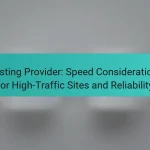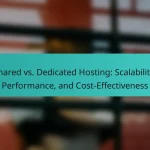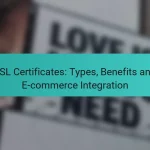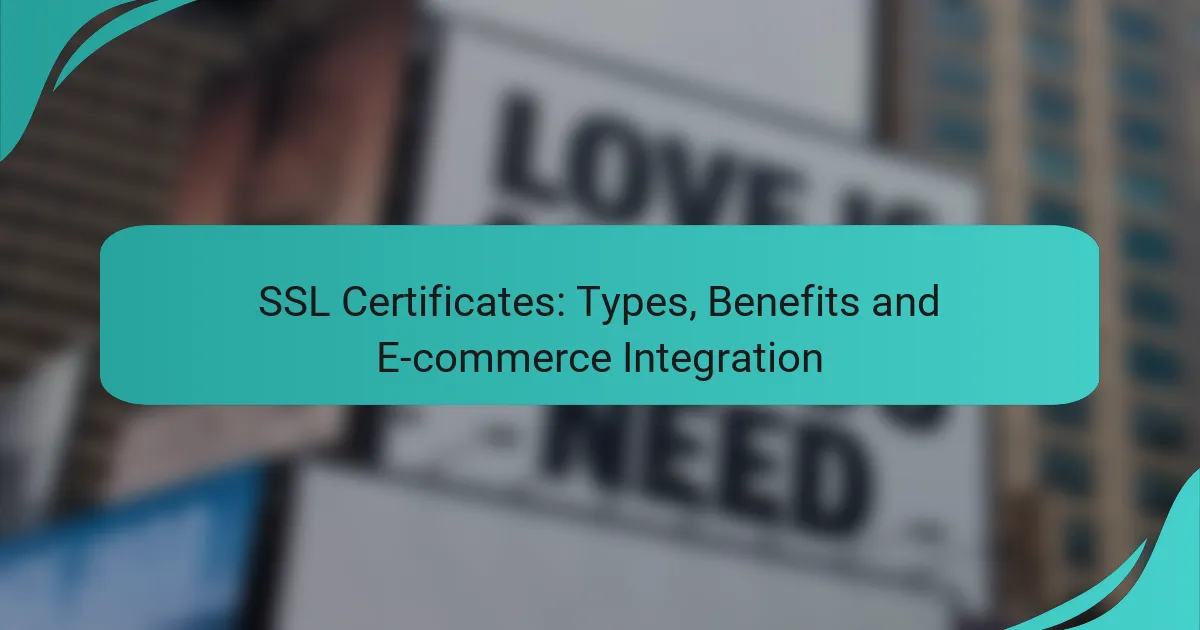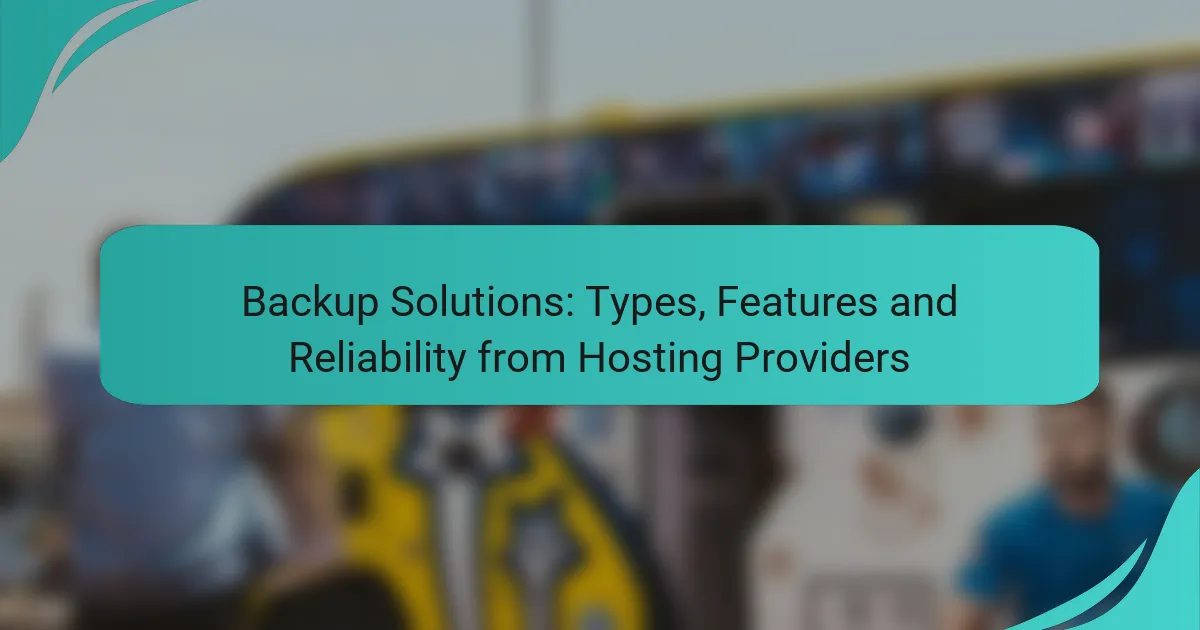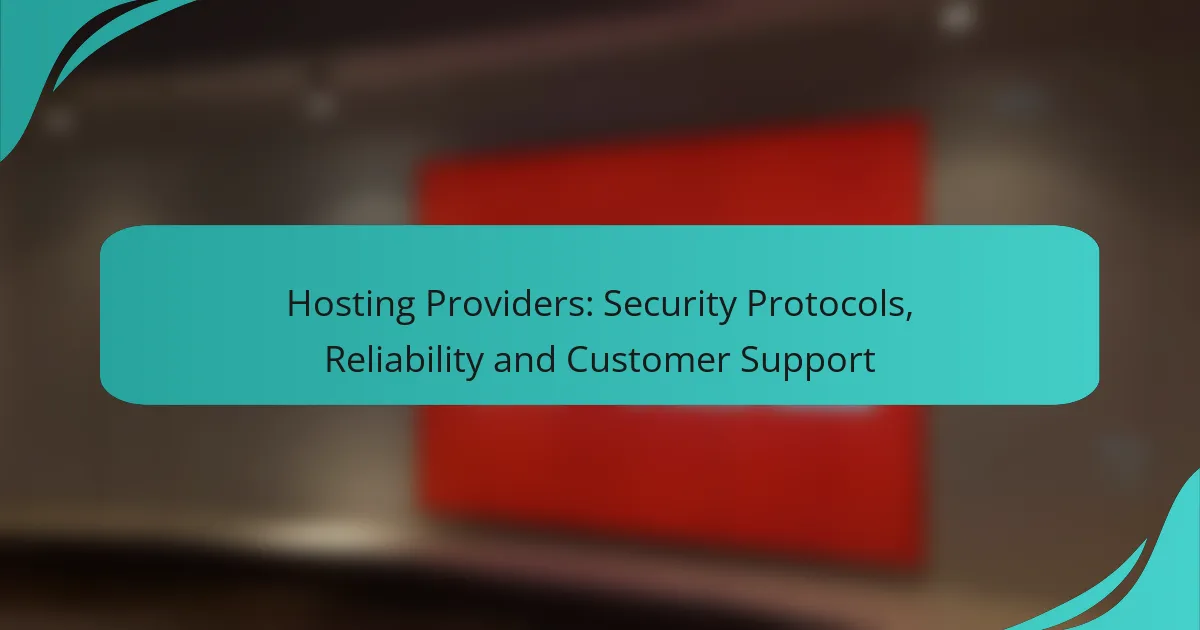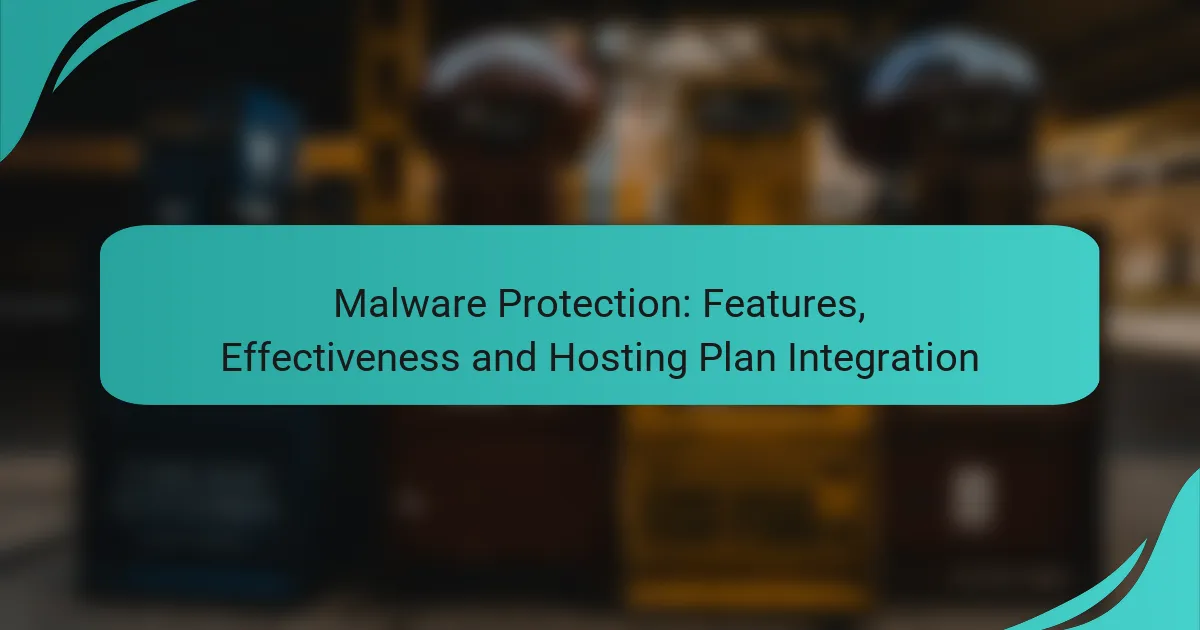In today’s digital landscape, small businesses face significant threats from distributed denial-of-service (DDoS) attacks, making effective protection essential for maintaining online availability and operational continuity. Implementing DDoS protection not only safeguards a business’s reputation but also enhances customer relations by ensuring uninterrupted service. With various solutions available, it’s important for small businesses to select a DDoS protection plan that fits their specific needs and budget.

What are the best DDoS protection solutions for small businesses in Canada?
For small businesses in Canada, effective DDoS protection solutions include a range of services that help mitigate the impact of distributed denial-of-service attacks. These solutions vary in features, scalability, and pricing, making it essential to choose one that aligns with your specific needs and budget.
Cloudflare DDoS Protection
Cloudflare offers robust DDoS protection that automatically detects and mitigates attacks without requiring user intervention. It utilizes a global network to absorb and filter malicious traffic, ensuring your website remains accessible during an attack.
Small businesses can benefit from Cloudflare’s free tier, which includes basic DDoS protection, while paid plans offer enhanced features like advanced threat intelligence and real-time analytics. Consider starting with the free version to assess its effectiveness before upgrading.
Akamai Kona Site Defender
Akamai Kona Site Defender provides comprehensive DDoS protection along with web application firewall capabilities. This solution is designed to protect against both network and application layer attacks, making it suitable for businesses with complex web applications.
With its scalable architecture, Akamai can handle large volumes of traffic, which is crucial for businesses expecting sudden spikes. However, pricing can be on the higher side, so evaluate your budget and specific requirements before committing.
Imperva DDoS Protection
Imperva DDoS Protection focuses on multi-layered security, offering both on-premises and cloud-based solutions. It is particularly effective for businesses that require real-time threat detection and automated response mechanisms.
Imperva’s service includes a user-friendly dashboard for monitoring traffic patterns and attack trends. Small businesses should consider its flexible pricing models, which can accommodate varying levels of protection based on their needs.
Radware DefensePro
Radware DefensePro is known for its real-time attack mitigation capabilities and behavioral-based detection. This solution is particularly effective for businesses that face frequent and sophisticated DDoS attacks.
Radware offers a unique feature that allows businesses to customize their security policies based on specific traffic patterns. While it may require more technical expertise to set up, the investment can pay off in enhanced security and uptime.
Amazon Web Services Shield
Amazon Web Services (AWS) Shield provides DDoS protection specifically for applications hosted on AWS. It offers two tiers: Shield Standard, which is free and protects against common attacks, and Shield Advanced, which provides additional features like cost protection and 24/7 access to the AWS DDoS Response Team.
For small businesses using AWS, Shield can be a cost-effective solution, especially if they are already utilizing other AWS services. Ensure to evaluate the potential costs associated with Shield Advanced if your business anticipates high traffic or complex security needs.

How does DDoS protection benefit small businesses?
DDoS protection is crucial for small businesses as it helps maintain online availability and ensures smooth operations. By mitigating the risk of distributed denial-of-service attacks, businesses can safeguard their reputation and customer relations.
Prevents downtime and service disruption
Implementing DDoS protection minimizes the risk of downtime caused by malicious attacks. Small businesses often rely on their online presence for sales and customer interactions, so even short disruptions can lead to significant revenue loss.
Many DDoS protection services offer real-time monitoring and automatic traffic filtering, which can prevent attacks from overwhelming servers. This proactive approach ensures that legitimate users can access services without interruption.
Enhances customer trust and satisfaction
When a small business consistently maintains its online services, it builds customer trust and satisfaction. Clients are more likely to return when they know they can rely on a website that is always accessible.
Moreover, having DDoS protection in place signals to customers that a business takes security seriously. This commitment can enhance brand loyalty and encourage positive word-of-mouth referrals.
Protects sensitive data and assets
DDoS attacks can serve as a distraction while more serious breaches occur, putting sensitive customer data at risk. By investing in DDoS protection, small businesses can better safeguard their assets and maintain compliance with data protection regulations.
Additionally, many DDoS protection solutions include features that monitor for unusual activity, helping to identify potential threats before they escalate. This layered security approach is essential for protecting both customer information and business integrity.

What are the costs associated with DDoS protection?
The costs associated with DDoS protection can vary significantly based on the level of service, the size of the business, and the specific needs for security. Businesses should consider ongoing subscription fees, initial setup costs, and potential financial losses due to downtime when evaluating DDoS protection options.
Monthly subscription fees
Monthly subscription fees for DDoS protection services typically range from low tens to several hundreds of dollars, depending on the provider and the features included. Basic plans may offer essential protection, while more comprehensive packages provide advanced features such as traffic analysis and real-time monitoring. Small businesses should assess their risk level and budget to choose a plan that meets their needs.
Setup and configuration costs
Initial setup and configuration costs can vary widely, often falling between a few hundred to several thousand dollars. This expense may include integrating the DDoS protection service with existing infrastructure and customizing settings to optimize security. It’s advisable to seek providers that offer support during the setup phase to avoid common pitfalls and ensure a smooth implementation.
Potential penalties for downtime
Potential penalties for downtime can be substantial, especially for businesses that rely heavily on online operations. Financial losses can range from hundreds to thousands of dollars per hour, depending on the industry and the scale of the disruption. Additionally, reputational damage can lead to long-term financial impacts, making effective DDoS protection an essential investment for small businesses.

What factors should small businesses consider when choosing DDoS protection?
Small businesses should evaluate several key factors when selecting DDoS protection, including scalability, response time, and integration with existing systems. These elements ensure that the chosen solution effectively meets their needs and can adapt to changing circumstances.
Scalability of the solution
Scalability refers to the ability of the DDoS protection solution to handle increasing traffic loads without compromising performance. Small businesses should look for solutions that can accommodate both current and future demands, especially during peak times or unexpected traffic spikes.
Consider solutions that offer flexible bandwidth options or tiered pricing models. This allows businesses to scale their protection as needed, avoiding overpaying for unnecessary capacity while ensuring adequate defense during high-risk periods.
Response time and support availability
Response time is critical during a DDoS attack, as delays can lead to significant downtime and lost revenue. Small businesses should prioritize providers that guarantee low latency and quick mitigation times, ideally within minutes.
Additionally, 24/7 support availability is essential. Ensure the provider offers round-the-clock assistance, so any issues can be addressed immediately, minimizing potential damage and disruption to operations.
Integration with existing infrastructure
Choosing a DDoS protection solution that integrates seamlessly with existing infrastructure is vital for operational efficiency. Small businesses should assess how well the solution works with their current hardware and software, including firewalls and routers.
Look for solutions that offer easy deployment and minimal configuration changes. This reduces the risk of operational hiccups and ensures that the DDoS protection can be implemented quickly and effectively without extensive downtime or resource allocation.

What are the implementation steps for DDoS protection?
Implementing DDoS protection involves a series of strategic steps to safeguard your small business from potential attacks. These steps include assessing current vulnerabilities and selecting a reliable DDoS protection provider tailored to your needs.
Assess current vulnerabilities
Begin by identifying the vulnerabilities in your network and online infrastructure. Conduct a thorough risk assessment to pinpoint areas that may be susceptible to DDoS attacks, such as your web servers, application servers, and network bandwidth.
Utilize tools like vulnerability scanners and penetration testing to evaluate your system’s defenses. Consider factors such as traffic patterns, peak usage times, and existing security measures to understand your exposure better.
Select a DDoS protection provider
Choosing the right DDoS protection provider is crucial for effective defense. Look for providers that offer a range of services, including traffic filtering, rate limiting, and real-time monitoring, to ensure comprehensive protection.
Compare different providers based on their response times, scalability, and customer support. It’s also beneficial to read reviews and case studies to gauge their effectiveness in real-world scenarios. Aim for a provider that can adapt to your business’s growth and evolving threats.
